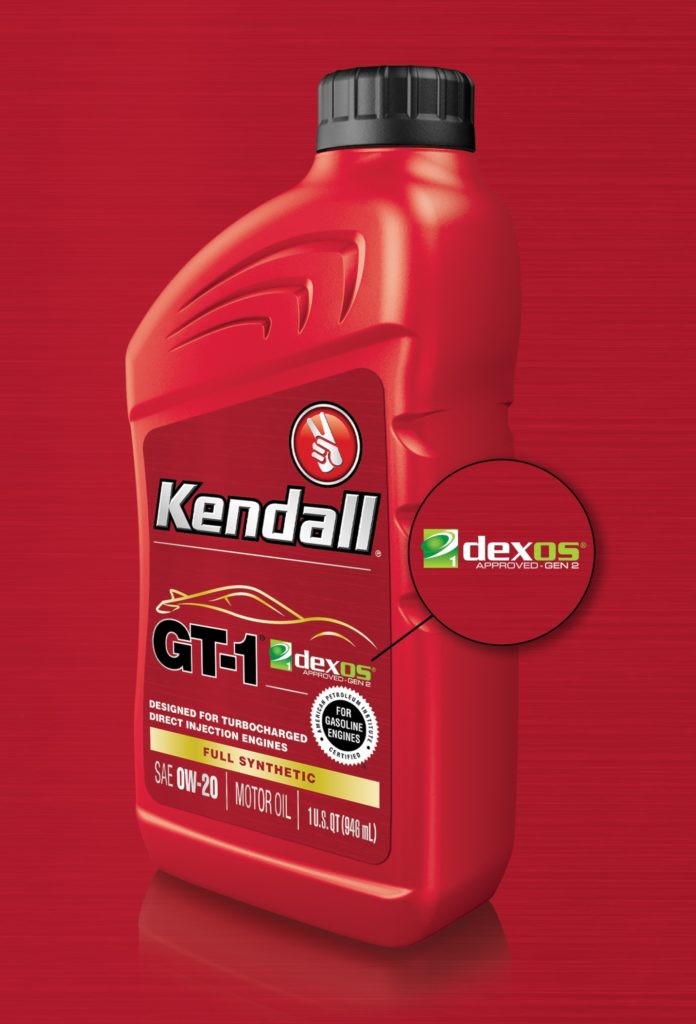Motor oil has one of the toughest jobs in your household; it must make a myriad of cars, trucks, SUV’s and small engines operate flawlessly under numerous conditions and workloads while meeting a host of requirements set forth by multiple manufacturers standards as well as the American Petroleum Institute.
We had an opportunity to speak with Kyle Kress, Automotive Technical Coordinator at Kendall Motor Oil to learn more about how Kendall formulates GT-1 Full Synthetic passenger car motor oils to exceed the standards of OE’s including GM and BMW as well as global automotive oil specifications. Kyle’s credentials are impressive, he is a member of the Society of Tribologists and Lubrication Engineers (STLE), The Society of Automotive Engineers (SAE), American Society of Mechanical Engineers (ASME) as well as the International Council of Machinery Lubrication (ICML). He is a certified Machinery Lubrication Analyst (MLA) I and Machinery Lubrication Technician (MLT) II.
Kyle shared that when Kendall is working on a new Full Synthetic formula they must follow stringent test protocols, for example to earn the GM dexos1™ “badge” Kendall makes a substantial investment in conducting field trials to prove that the specific Kendall formula will perform flawlessly across a broad range of engines, loads, speeds and environmental conditions. These tests are not just on dynos and test benches, they are performed on vehicles on the road with numerous points of information being measured and logged to ensure that all requirements are met across a variety of operating conditions.
Take a moment to process that-Kendall Full Synthetic formulas must perform the same in our favorite large displacement, slow revving American V-8 engine or the latest two liter (or less) turbocharged European engine. The conditions in those two samples are radically different, from compression ratios, operating pressures, temperatures or fuel consumption standards, Kendall is tested and certified by the manufacturers to meet or exceed their standards. As a consumer and vehicle owner it’s reassuring to know that Kendall oil in the crankcase will help if you run into any warranty issues regarding your motor. GM requires dexos1™ to be used in all 2011 and later GM vehicles, look for the green symbol on Kendall products to avoid motor warranty issues with your GM dealer.

The license certifying Kendall GT-1 dexos1™ Gen 2 Full Synthetic Motor Oil compliant is not handed out like candy by General Motors. In fact, to obtain GM approval Kendall invests millions of dollars and up to two years of resources to prove that each specific formulation like Kendall GT-1 0W-20 are up to the challenge of protecting a Silverado truck or a Cruze subcompact. Again those two examples have very different operating parameters, one is a naturally aspirated work horse and the other is a forced induction powerhouse. The fact that they both have equal protection with Kendall GT-1 Full Synthetic Motor Oil is impressive and Kendall offers four different Full Synthetic formulations in the GT-1 range to cover many vehicle applications.
Digging a little deeper, Kyle shared some of the specific phenomenon that small displacement, turbo charged motors have to deal with and how Kendall combats these issues while addressing fuel efficiency, longer drain intervals and as many as 200 points of information monitoring oil conditions in the vehicle ECU. While turbocharged motors are frequently the choice of enthusiasts for maximum power with reasonable fuel economy via minimal displacement, those features can wreak havoc for engine lubrication fostering low speed pre-ignition leading to “super knock” that can destroy engine internals in a single occurrence.
Controlled Combustion vs. Auto Ignition

Just a few decades ago, “engine knock” was a bad, but not typically fatal signal that engine timing was not optimal; resulting in poor performance, reduced fuel economy and increased tail pipe emissions. Kyle explained that with the combination of increased cylinder temperatures and pressures via direct gasoline injection and turbo charging combined with advanced timing (to constantly enhance fuel economy)can result in pre-ignition. This leads to over-pressurization that can fracture pistons and/or cylinders. We expected to hear that this is isolated to high speed, high load conditions, Kyle shared that this happens more frequently at lower speed/lower RPM conditions. Kendall employs the knowledge of leading technology partners around the world to ensure that Kendall Full Synthetic oils are optimized to prevent the pressure build up that can lead to this potentially fatal condition.
In the next Kendall Motor Oil Knowledge Session we will learn more about the additives that Kendall chooses to ensure Kendall Full Synthetic oils perform across the broadest range of engine conditions and driving requirements.
If you would like to learn more about Full Synthetic oils please take a look at a recent study published on the subject by the AAA at: http://newsroom.aaa.com/2017/06/aaa-spills-truth-oil-changes/
To shop Kendall Motor Oil on CarParts.com, please click here.
Any information provided on this Website is for informational purposes only and is not intended to replace consultation with a professional mechanic. The accuracy and timeliness of the information may change from the time of publication.

















